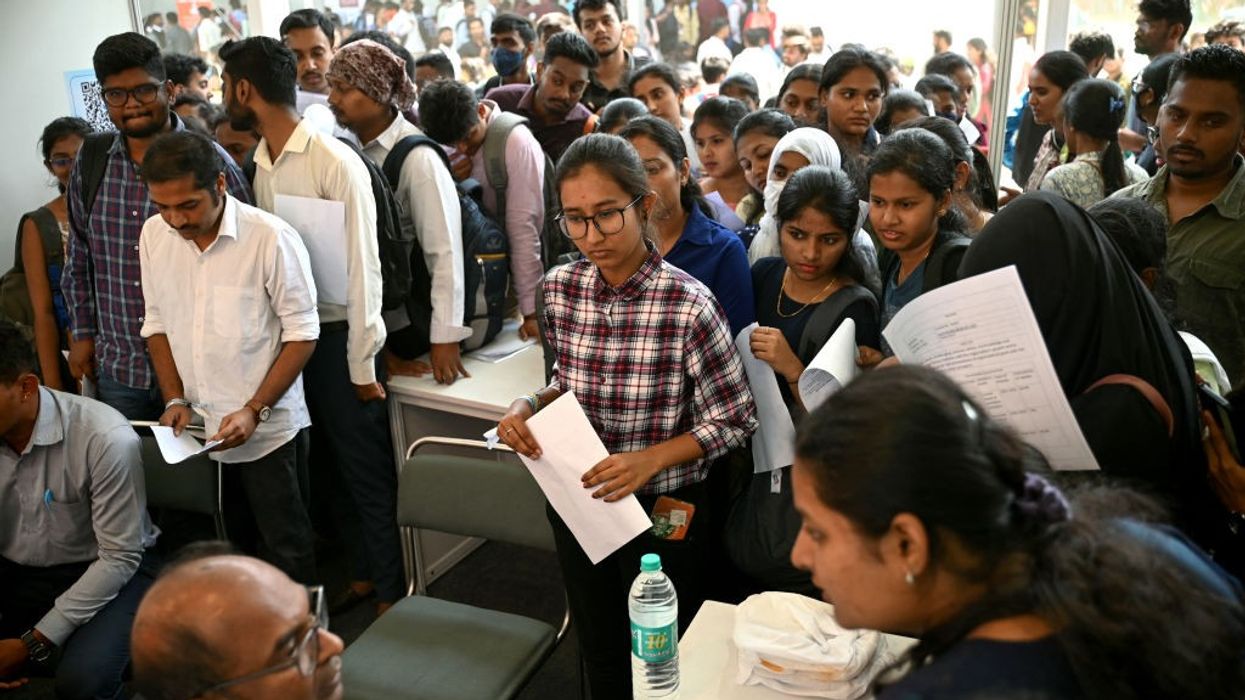INDIA's unemployment rate is likely to decline by as much as 97 basis points by 2028 as the country’s economy hits the $5 trillion mark, fuelling a rise in employment, a new report said.
Unemployment rate — the percentage of people in the labour force who are without jobs — is projected to fall from 4.47 per cent in 2024 to 3.68 per cent in 2028, the India Employment Outlook 2030 report by thin ktank Observer Research Foundation (ORF) said.
"India’s job market is experiencing a transformation as the country has become the world’s fastest growing large economy in the aftermath of the Covid-19 pandemic,” the report said.
The country’s young population, whose median age is 28.4 years, holds a key to fuelling economic expansion.
“With a growth rate of 7.8 per cent, India could potentially achieve its target of becoming a $5 trillion economy by 2026-27, with such growth being underpinned by strong private consumption and public investment,” it said.
India’s gross domestic product (GDP) size is estimated at just under $4 trillion in 2024.
An ORF press statement said the report identifies sectors that the country’s 600-million-plus population of people aged 18-35 years regard as aspirational, as these sectors could act as engines of growth in the years ahead.
“The report forecasts that as India approaches its $5 trillion goal, overall employment could rise 22 per cent, while unemployment could decline by 97 basis points by 2028,” the statement said.
"The service sector in particular is set to witness significant job creation with each unit rise in services output expected to contribute to a substantial 0.12 per cent increase in employment."
The report singles out ten especially high-opportunity sub-sectors in the services space.
These include digital services, financial services, and services related to health, hospitality, consumer retail, e-commerce, and renewable energy. Other areas poised for rapid growth are global capability centres, and MSME and startup ecosystems.
The burgeoning service sector also offers encouraging avenues for women’s employment. Hence, investing in women’s skilling, financial inclusion, and entrepreneurship needs to be prioritised further, argues the report.
The projections for India’s manufacturing sector are less optimistic.
"In spite of the US’ growing imports from India, India’s competitive cost structures and labour resources, and the government’s push for manufacturing through flagship schemes such as Make in India, employment in the sector appears to have declined," the report said.
“Technological advances and increased automation continue to cast doubts upon the country’s ability to absorb its expanding workforce,” the statement said.
"In this context, transitioning towards industrial value chains associated with the service sector could help rejuvenate employment."
Nilanjan Ghosh, a director at ORF and one of the authors of the report said, “Policymakers and public sector schemes could partner more closely with other stakeholders to identify employability and skilling gaps. The next step would be to upgrade curricula and skills to make India’s talent pool more industry ready.”
Ghosh added that nurturing entrepreneurship would be crucial for improved next-gen employment.
“A new class of entrepreneurs could stimulate job creation, expand India’s startup ecosystem, spur innovation, and promote youth participation. But we also need to ensure that the workplaces of the future are gender-sensitive and inclusive,” he said.
(PTI)





